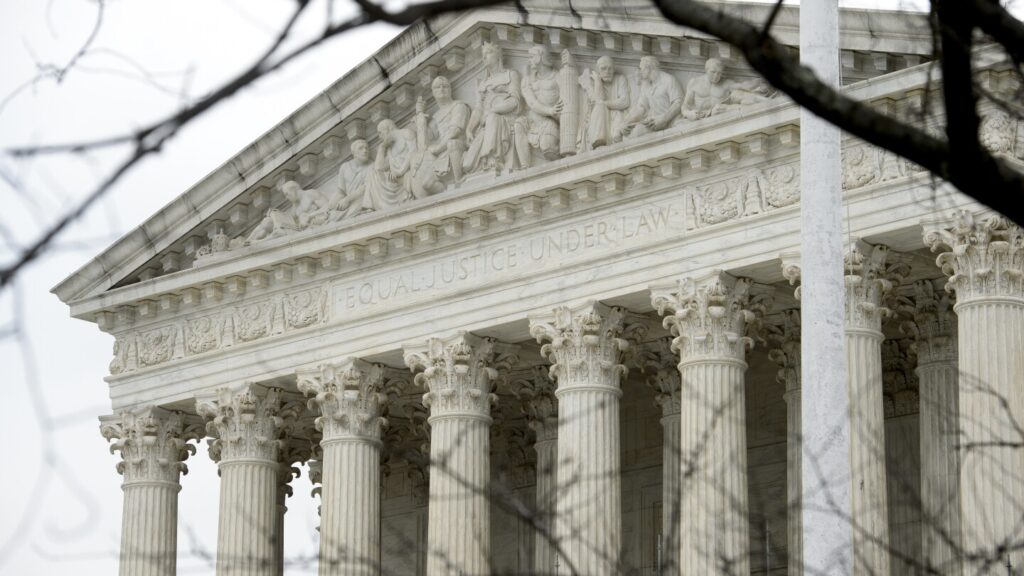
WASHINGTON – In a landmark decision, the Supreme Court on Friday upheld a Texas law designed to prevent children from accessing online pornography, marking a significant moment in the ongoing debate over digital content regulation.
Immediate Impact
The ruling, which split the court along ideological lines with a 6-3 vote, supports Texas’ effort to impose age verification requirements on adult websites. This decision represents a setback for the Free Speech Coalition, an adult-entertainment industry trade group that challenged the law.
Justice Clarence Thomas, writing for the majority, stated, “Adults have the right to access speech obscene only to minors … but adults have no First Amendment right to avoid age verification.”
Key Details Emerge
The Texas law is part of a broader movement, with nearly half of the U.S. states enacting similar legislation. These laws require users to verify their age to access sexually explicit material online, a response to the ease of access provided by smartphones and other digital devices.
Justice Elena Kagan, in her dissent, argued for a more stringent legal standard to assess the law’s implications on adult free speech. “I would demand Texas show more, to ensure it is not undervaluing the interest in free expression,” she wrote.
Industry Response
Following the ruling, Pornhub, a major adult website, has ceased operations in several states, including Texas, citing the technical and privacy challenges posed by compliance with these laws.
Texas Attorney General Ken Paxton hailed the decision, asserting that companies must implement reasonable age verification measures to protect children from exposure to pornography.
“Companies have no right to expose children to pornography and must institute reasonable age verification measures,” Paxton stated.
By the Numbers
– 6-3: The Supreme Court’s vote on the ruling
– Nearly 50%: Percentage of U.S. states with similar age verification laws
What Comes Next
The decision could encourage more states to adopt similar laws, as noted by the National Center on Sexual Exploitation. However, the Free Speech Coalition contends that the law imposes an undue burden on adults, requiring them to provide personal information susceptible to hacking or tracking.
Alison Boden, executive director of the Free Speech Coalition, criticized the ruling as “disastrous,” highlighting its chilling effect on adult free speech while noting that minors continue to find ways to access sexual content online.
Background Context
The Supreme Court’s decision reverses decades of precedent regarding online speech. In 1996, the court struck down parts of a law banning explicit material accessible by minors online, and in 2004, it ruled against a federal law aimed at protecting children from online pornography, favoring less restrictive measures such as content filtering.
Texas argues that technological advancements over the past two decades enable online platforms to verify users’ ages effectively, drawing parallels to ID checks at physical adult stores upheld by the Supreme Court in the 1960s.
Expert Analysis
Samir Jain, vice president of policy at the Center for Democracy & Technology, expressed concerns over the privacy and free-expression implications of age verification requirements. He stated that the court’s decision “overturns decades of precedent and has the potential to upend access to First Amendment-protected speech on the internet for everyone, children and adults alike.”
Regional Implications
While district courts initially blocked similar laws in Indiana and Tennessee, appeals courts have since allowed them to take effect. This ruling may embolden other states to pursue comparable legislation, potentially reshaping the landscape of online content regulation across the country.
As states consider their next steps, the debate over balancing child protection and adult free speech rights continues to evolve, with the Supreme Court’s decision setting a new precedent for future legal battles.
Associated Press writers Jonathan Mattise in Nashville, Tenn., Barbara Ortutay in San Francisco, and Nadia Lathan in Austin, Texas contributed to this report.






